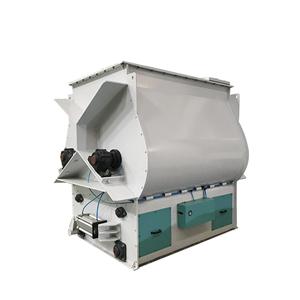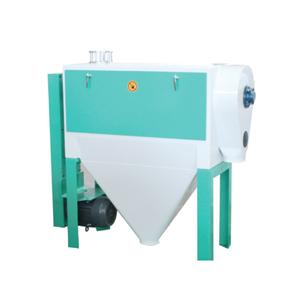The global food crisis under the Russian Ukrainian War: two of the world's three major grain exporting countries are at war
The famous theory of "Butterfly Effect" is also applicable to the global food crisis caused by today's Russia Ukraine war.
Since Russia started the war against Ukraine on February 24, the Russian Ukrainian war is rapidly forming a "tornado" sweeping our table food crisis. Under this "tornado", the global food market embargo, production reduction and other news continue, and the prices of food and agricultural materials continue to rise, which makes many countries that rely on food imports tremble.
China is a large agricultural country and a populous country. The food issue has always been a sensitive issue. The Russian Ukrainian war once again shows us that there are no outsiders in the war in the era of globalization. The butterfly effect produced by the Russian Ukrainian war has increased the uncertainty of global food supply and trade. The rice bowl of the Chinese can only be put in our own hands.
The grain production reduction in Ukraine is the first "tornado" caused by the flapping wings of the "Butterfly".
To outsiders, the war is just news, but the real war means that farmers flee their homes, infrastructure and equipment are damaged, transportation is interrupted, and the economy of the region is paralyzed, which seriously affects the cultivation of food. Most of Ukraine's high-yield farmland is located in the eastern region, which is the area with the most intense war.
The Agricultural Policy Department of Ukraine announced on March 23 that the sowing area of main spring crops in 11 Ukrainian states in 2022 is expected to be 5.99 million hectares, a decrease of 1.689 million hectares over last year (7.679 million hectares). Global concerns about Ukraine's reduced harvest in 2022 have become a reality.
Among the three major black soil distribution areas in the world, Ukraine occupies 40% of the black soil area. It is a major agricultural producer and exporter in the world and is known as the "granary of Europe".
According to the prediction of Ukraine agricultural policy department, the planting area of Ukraine will be reduced by 30% due to the Russian Ukraine conflict, which will have a negative impact on food security of the countries importing agricultural products such as wheat, corn and edible oil in Ukraine.
The famous theory of "Butterfly Effect" is also applicable to the global food crisis caused by today's Russia Ukraine war.
Since Russia started the war against Ukraine on February 24, the Russian Ukrainian war is rapidly forming a "tornado" sweeping our table food crisis. Under this "tornado", the global food market embargo, production reduction and other news continue, and the prices of food and agricultural materials continue to rise, which makes many countries that rely on food imports tremble.
China is a large agricultural country and a populous country. The food issue has always been a sensitive issue. The Russian Ukrainian war once again shows us that there are no outsiders in the war in the era of globalization. The butterfly effect produced by the Russian Ukrainian war has increased the uncertainty of global food supply and trade. The rice bowl of the Chinese can only be put in our own hands.
The grain production reduction in Ukraine is the first "tornado" caused by the flapping wings of the "Butterfly".
To outsiders, the war is just news, but the real war means that farmers flee their homes, infrastructure and equipment are damaged, transportation is interrupted, and the economy of the region is paralyzed, which seriously affects the cultivation of food. Most of Ukraine's high-yield farmland is located in the eastern region, which is the area with the most intense war.
The Agricultural Policy Department of Ukraine announced on March 23 that the sowing area of main spring crops in 11 Ukrainian states in 2022 is expected to be 5.99 million hectares, a decrease of 1.689 million hectares over last year (7.679 million hectares). Global concerns about Ukraine's reduced harvest in 2022 have become a reality.
Among the three major black soil distribution areas in the world, Ukraine occupies 40% of the black soil area. It is a major agricultural producer and exporter in the world and is known as the "granary of Europe".
According to the prediction of Ukraine agricultural policy department, the planting area of Ukraine will be reduced by 30% due to the Russian Ukraine conflict, which will have a negative impact on food security of the countries importing agricultural products such as wheat, corn and edible oil in Ukraine.
Affected by the war, the bigger problem is the sharp rise in the price of global agricultural materials and the ban on food sales, which also exacerbated the food crisis.
On the one hand, due to the outbreak of the Russian Ukrainian war, Europe and the United States and other countries have increased sanctions against Russia and its ally Belarus. The two countries are the world's major exporters of several key fertilizer compounds, including urea and potassium fertilizer.
On the other hand, both Russia and Ukraine announced a moratorium on the export of agricultural products such as grain and chemical fertilizer.
Ukraine announced a temporary ban on the export of all types of chemical fertilizers on March 12.
Some analysts said that Russia and Belarus are the second and third largest producers of potash fertilizer respectively. After the export of potash fertilizer in Belarus was prohibited, about 40% of the global potash fertilizer supply will be affected.
Today, when industrialized agriculture is highly dependent on chemical fertilizer to maintain output, the chemical fertilizer crisis in 2022 is likely to be as serious as the agricultural crisis.
The particularity of the Russian Ukrainian war is that two of the world's three major grain exporting countries are at war, which endangers the table of countries that rely heavily on grain importers.





